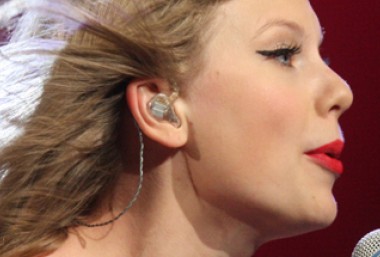‘Another day, another drama’ for country and pop music icon, Taylor Swift. In a lengthy social media post, Swift last week described the sale of her music catalogue to Scooter Braun’s media company Ithaca Holdings as her ‘worst-case scenario’.
Braun, a music mega-mogul and manager of artists like Justin Bieber, Demi Lovato and Ariana Grande, purchased Swift’s old record label, Big Machine Label Group, as part of a US$300 million deal. The sale resulted in Braun acquiring Swift’s catalogue of master recordings for six studio albums, which reportedly accounts for a whopping 30% of the company’s market share based on sales and streaming revenue alone. While Swift is no stranger to a well-publicised feud, these developments have left her seeing ‘Red’ on both a personal and professional level. Swift claims that Braun bullied her for years and that she ‘wasn’t given an opportunity’ to purchase her master recordings, which date back to when she released her first self-titled album at the age of 15.
A master recording is the original recording of a piece of music. All copies are made from this recording. Traditionally, musicians will sign a record deal with a label that allows the record company to own the rights to their master recordings. The artist may receive a cash advance to record the album and receive royalties after it has been released. Royalties are payments for the right to use intellectual property (IP), in this case, music. Typically, when a track is streamed or downloaded, the owner of the master recording (usually the record label) gets paid first. The artist may also receive a percentage in royalties.
The IP rights that are tied up in recorded music generally fall into three camps:
- authors’ rights
- performance rights
- mechanical rights.
Authors’ rights
Authors’ rights are exercised by the author or creator of a piece of music or song. Depending on the terms of their record contract, a songwriter may have certain moral rights, even if the work is owned by someone else. For example, Swift has the moral right to be credited as the ‘songwriter’ for any song she has written on her albums.
Performance rights
Performance rights are exercised when a musical work is played, communicated or broadcast. This might be in a live concert, on television, on the radio, through a streaming platform or on YouTube.
Mechanical rights
Mechanical rights are exercised when a musical work is copied or reproduced, for sale or use by the public. This includes copying music onto a CD, downloading or streaming music, or using music on a television program or movie.
Recorded music can generate two types of royalties:
- Royalties for musical works
- Royalties for sound recordings
Royalties for musical works
Musical works are songs or compositions that can be ‘written down’ eg, words, melodies etc. Performance royalties can be paid to the songwriter or owner of a musical work that is performed in public. Mechanical royalties can be paid to the songwriter or owner of a musical work that is reproduced for commercial use.
Royalties for sound recordings
Sound recordings are recordings of a musical work (including a ‘master recording’). Performance royalties can be paid to the record label or artist that owns the sound recording when it is performed in public. The record label or artist that owns the sound recording will also earn revenue when the sound recording is reproduced, used or copied.
The IP rights of artists, songwriters and composers in New Zealand are protected under the Copyright Act 1994. The distribution of royalties is regulated by two industry organisations, APRA AMCOS and Recorded Music New Zealand, for the benefit of artists, composers and songwriters. APRA AMCOS consists of APRA (the Australasian Performing Right Association Limited) and AMCOS (the Australasian Mechanical Copyright Owners Society Limited). APRA administers and collects performance royalties for musical works. AMCOS administers and collects mechanical royalties for musical works. Recorded Music New Zealand collects performance royalties for sound recordings. However, mechanical royalties for sound recordings are administered through the record label or artist that owns those recordings.
For burgeoning artists looking for their big break, these issues can be tricky to navigate and should be carefully carved out in the record contract. Swift has regularly spoken out about the importance of artists’ IP rights and is an advocate for artist ownership of songs. Swift left Big Machine Label Group in 2018 and signed with Universal Music Group (‘UMG’), a label Swift said ‘believes I should own anything I create’. The contract made sure Swift owned the rights to all her master recordings moving forward. This includes her recent hits ‘Me!’ and ‘You Need To Calm Down’, and the much-hyped album ‘Lover’. Her contract also stipulated that all of UMG’s artists would receive a cut of proceeds from any sales of UMG’s shares in Spotify, on a non-recoupable basis.
Swift’s current situation appears to be more of a personal issue than a legal one. Legal experts in the US have said Swift has no legal recourse against the sale. Moreover, Swift will still have some control over certain types of commercial exploitation of her master recordings that require her permission as owner/artist of the underlying composition. For example, both Braun and Swift would have to give permission for a movie studio to license one of her songs for a movie.
However, Swift’s message is clear: artists should be entitled to benefit financially from the fruits of their labour. As someone whose IP rights have made her a multi-million-dollar powerhouse, she is in a powerful position to advocate for and influence the rights of recording artists. In her own words, this involves ‘learn[ing] how to better protect themselves in a negotiation’. In her 2018 single ‘Delicate’, Swift told us her reputation has never been worse. In 2019, it seems that it has never been better.





